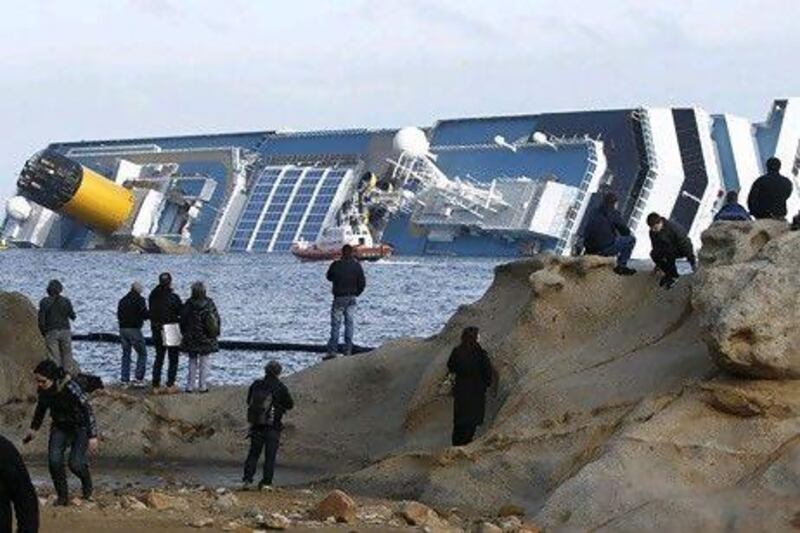The global cruise industry must tighten up on safety after the Costa Concordia sinking or have stringent new safety regulations imposed, Europe's senior transport commissioner says.
Delegates to a passenger-ship safety conference in Brussels heard that the European Union intends to present "by the end of 2012 new rules and safety standards for passenger ships" for adoption by the UN's International Maritime Organization (IMO).
"In the light of the Costa Concordia tragedy, the commission considered it appropriate to review as an element of continuous safety improvement such as damage stability, orderly evacuation, communication and training," the EU transport commissioner Siim Kallas, told the conference yesterday.
"The commission is encouraging industry to continue its own review leading to voluntary industry commitments. However, for such commitments to work, it is necessary to ensure they are honoured in practice, and the commission would therefore not exclude the possibility of legislative measures should they become necessary."
In January, at least 30 people died and two are still missing after the cruise liner Costa Concordia ran aground off the coast of Italy.
Since then the cruise industry has been at pains to show it is already working to tighten its safety procedures in advance of any findings arising from the inquiry into the accident.
At yesterday's conference, the European Cruise Council (ECC) and the Cruise Lines International Association (CLIA), based in the United States, announced three safety improvements.
The ECC chairman and CLIA executive committee member Manfredi Lefebvre said the new rules would see additional adult life jackets on each cruise ship to ensure that the number of life jackets carried is "far in excess" of the number of people on board.
The measure will save passengers having to return to cabins in an emergency, in the dark as on the Costa Concordia, to collect their life jackets.
To minimise "unnecessary disruptions and distractions" on the bridge, access will be limited to operational crew during any period of restricted manoeuvring or when increased vigilance is required. Also, each voyage plan must be drafted by a designated officer and approved by the ship's master, and all bridge team members are to be briefed on it in advance of sailing.
"Today's European Commission event is in perfect alignment with our industry efforts to improve cruise ship safety," said Mr Lefebvre. "I am pleased to be given a chance to outline how the industry and the regulators can move forward together in our common goal of preventing future accidents.
"The cruise industry is highly regulated, but by bringing forward voluntary initiatives such as these, we significantly and immediately improve safety standards."
But the EU hinted yesterday its plans were more far-reaching and costly for cruise lines to implement.
IMO guidelines on safe return to port and orderly evacuation and abandonment of a ship, as well as its guidance on watertight doors on passenger ships, could all be enacted under EU law.
He also hinted at exerting pressure to extend EU law internationally, in advance of any agreement at the IMO.
"Some issues arising from the Costa Concordia accident should be looked at from the point of view of enforcement and implementation of current EU legislation [with] flag states [other IMO member countries] having a responsibility to enforce the robust regime already in place with the European Maritime Safety Agency," said Mr Kallas.
"Shipping is by its nature global, so for some of the proposals a twin track could be followed: proposed EU legislation can be fed into IMO in parallel," he said. "Tragic accidents … put ship safety in the spotlight. There are always lessons to learn from such disasters, but we are not just waiting for the next accident to happen.
"It would be foolhardy merely to respond after the event."
twitter: Follow and share our breaking business news. Follow us





